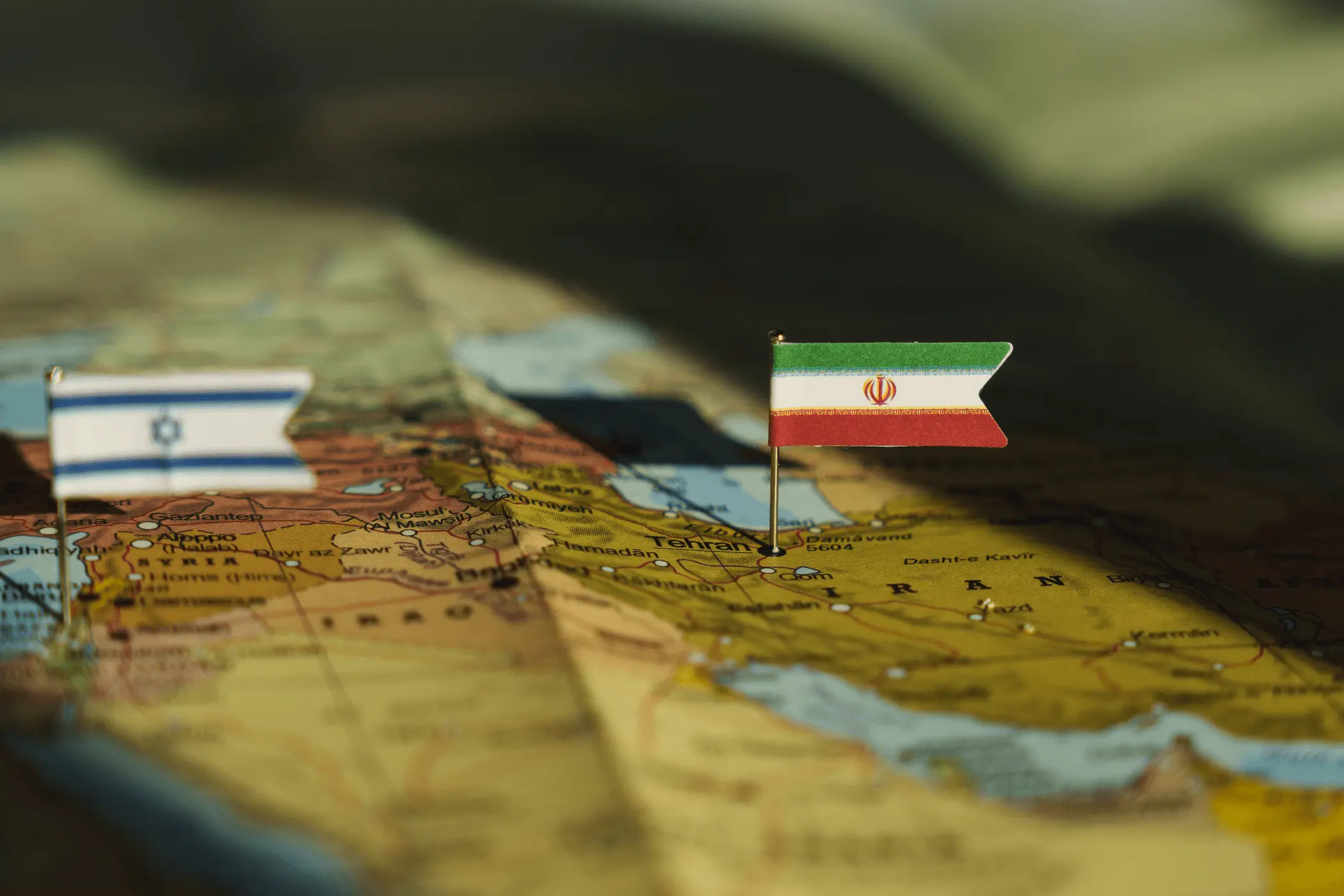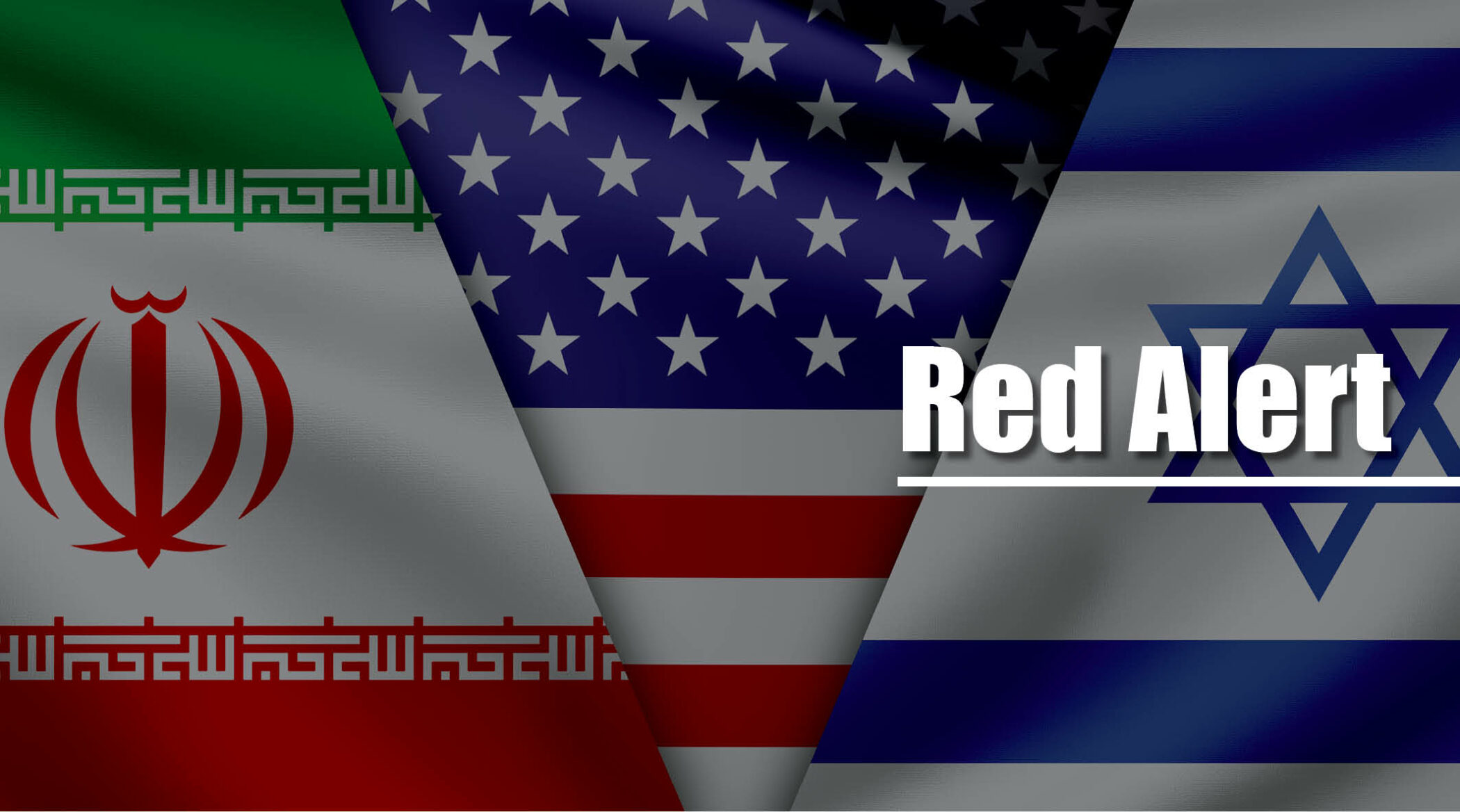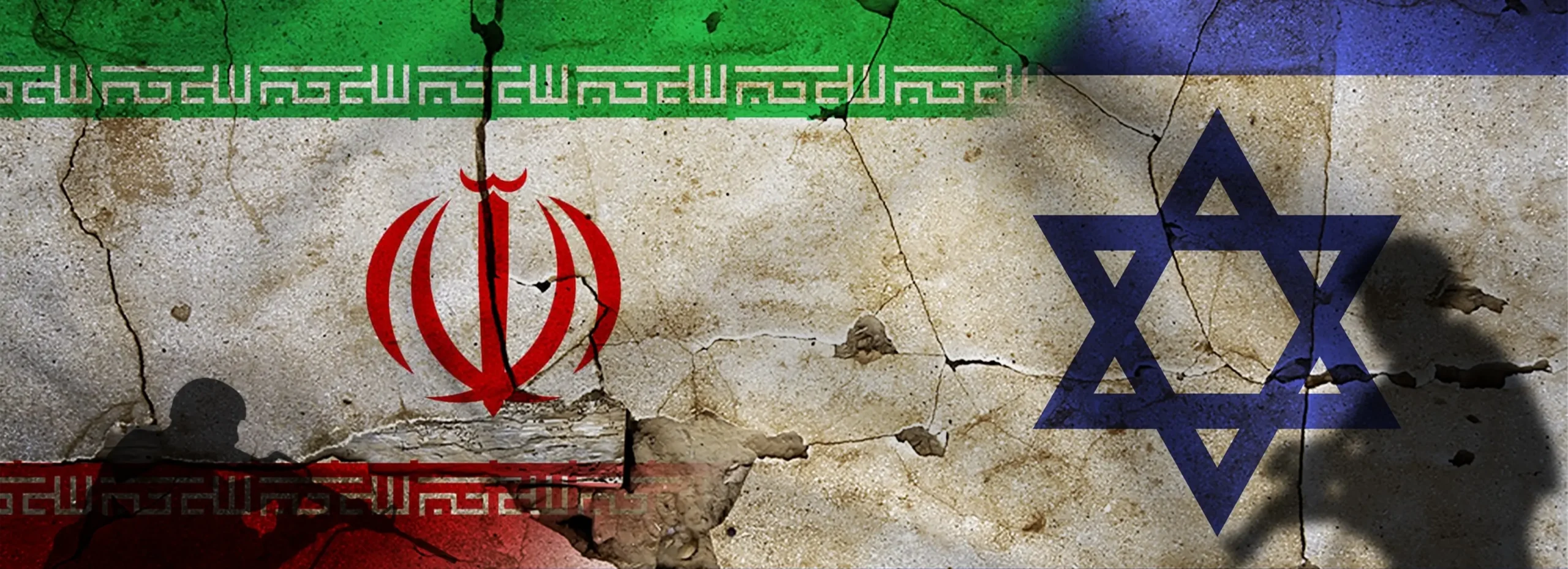22 Jun 2025
Iran and Israel: The War That Will Redraw the Middle East
The war between Iran and Israel is arguably a war of survival for the regime in Iran. Attacking Iran seemed to be a logical step for Israel after almost destroying its arms of proxies in the region. the regime, which stands on three pillars, namely, its conventional missile arsenal, its extensive network of regional proxy forces, and its nuclear program, is facing a war of attrition that might eventually end the very survival of the regime. The fall of the regime in Iran goes beyond mere regime change, rather, it is considered a state collapse.
The collapse of the Iranian state would have dire consequences for the region. However, the possibility of the regime surviving remains a significant scenario. While the fall of Iran is widely regarded as a regional catastrophe, its continued survival, particularly with Tehran asserting itself as a regional superpower, could prove even more destabilizing for Israel and its allies. Both outcomes carry profound regional and global implications, signalling a transformation in Middle Eastern geopolitics. The pressing question is not whether change is coming, but rather: what will the new Middle East look like?
19 Jun 2025
Red Alert: Potential US Attack on Iran
On June 13, 2025, Israel launched a surprise offensive against Iran, striking nuclear facilities, missile bases, air defenses, and targeting military leaders and nuclear scientists. In response, Iran retaliated the same evening with firing over 150 ballistic missiles and 100 drones at Tel Aviv and Haifa.
Israel and Iran have continued to trade blows and there are no significant signs of a potential slowdown in the conflict between the long-time adversaries. The spectre that looms over both is that of U.S. President Donald Trump, who has gone from negotiating with Iran for a nuclear deal to pushing for its “unconditional surrender” in the span of a week. as the U.S. simultaneously repositions its military assets to potentially strike Iran.
10 Oct 2024
Wars and Refugees: To Israel and Beyond
The Israeli military has reportedly launched a recruitment campaign offering asylum seekers residency in exchange for their service in the Israeli Defence Forces (IDF). The Israeli government already struggling with a shortage in manpower needed for its war on multiple fronts including in Gaza and Lebanon. While this policy is not totally pioneered by Israelis, it faces serious legal and humanitarian repercussions. Additionally, it adds a layer of uncertainty to the fate of refugees and asylum seekers in Europe who might face the same fate as asylum seekers in Israel given the ongoing Russia-Ukraine War and problems with conscription.
5 Oct 2024
A Year of War on Gaza: Who Loses and Who Gains?
The Israel-Hamas War has now entered its second year following the unexpected assault by Palestinian factions on Israel on October 7, 2023. This sudden attack disrupted Israel’s long-held sense of security, undermining public confidence in both the Israeli military and its intelligence apparatus. In response to the incursion, the Israeli military launched a devastating offensive on Gaza, resulting in over 41,500 fatalities and leaving 96,000 others wounded Moreover, a punitive blockade has severely cut off essential supplies of food, energy, water, and medicine, crippling Gaza’s already fragile healthcare system. The blockade, coupled with ongoing military strikes, has devastated key infrastructure, housing, the economy, agricultural lands, and fishing fleets. This has pushed nearly half a million people into a state of food insecurity.
Israel has consistently forced Gaza’s residents to relocate into increasingly confined areas, with the number of displaced individuals now reaching nearly 1.9 million. The widespread devastation has led the United Nations to issue repeated warnings, cautioning that Israel’s actions are rendering Gaza uninhabitable.
After a year of war, Israel has failed to achieve its primary objectives. Hamas remains intact, and the prisoners held by its factions have not been released. Instead, the war has widened, with violence escalating beyond Gaza and into the West Bank, while tensions between Israel and Iran, along with its regional proxies, have intensified. This escalation has pushed the Middle East to the brink of a broader confrontation, potentially setting the stage for a full-scale war between Israel, Iran, and its respective proxies. As hopes for a ceasefire and prisoner exchange dwindle, pressing questions now emerge: Who stands to lose and who will benefit from this protracted war? When and how will Israel’s war conclude, and what will be left in its wake?
This analysis highlights the gains and losses of the most important parties to the conflict as follows:
17 Apr 2024
The Fallout of Escalating Iranian-Israeli Tensions
The Iranian Revolutionary Guard's Air Force made a historic move by launching a direct assault on Israel in an operation dubbed "The True Promise," marking the first instance of such an attack originating from Iranian territory. Late on Saturday, April 13, 2024, Israeli cities were subjected to a relentless barrage of drones and ballistic missiles, signalling a significant escalation in tensions between the two nations. This offensive action follows Iran's earlier pledge to retaliate against Israel for its targeting of the Iranian consulate in Damascus, an incident that resulted in the deaths of seven Revolutionary Guard members, including two high-ranking leaders, on April 1.
This calculated escalation underscores Iran's unwavering commitment to defending its sovereignty and national interests while bolstering regional security. The global spotlight now shifts to the scale, sophistication, and broader implications of Iran's strike against Israel.
The Iranian assault on Israeli soil marks a pivotal moment in the ongoing conflict between the two adversaries, thrusting their hostilities from the shadows into the open arena of direct confrontation.
Against this backdrop, the Israeli response hinges on several key factors. Firstly, the extent to which Iranian proxies, such as the Houthis and Hezbollah, may actively participate in the conflict will influence Israel's strategic calculus. Secondly, the response will be shaped by the presence or absence of casualties among Israeli forces, as well as the effectiveness of its defence systems, bolstered by support from the United States, in mitigating potential damage. Lastly, how Israel opts to retaliate will be of paramount importance in determining the trajectory of the conflict.
Consequently, this analysis aims to elucidate the attack's ramifications and its economic repercussions on the parties involved in the conflict.
1 Mar 2023
Have Netanyahu’s Judicial Reforms Opened an Existential Can of Worms?
Israel’s proclaimed status as the only democracy in the Middle East is coming into question as enraged Israelis take to the streets to protest the governments’ most recent proposals. Netanyahu’s controversial right-wing government’s attempt to overhaul the judiciary has intensified polarization and widened the longstanding gaps between the right and left as well as the secular and the religious segments of society. The proposed law, which would allow the government to override court decisions by a simple majority and make its own judicial appointments, has already passed votes in a session of the Knesset Law and Constitution Committee to go to its first reading at the Knesset on February 20th, supposedly leaving time for the sides to attempt a negotiation process.
However, as trust in political parties and the formal democratic process has declined, protesting until the decision is reversed appears to be the left’s only option as protests continue for the seventh week. Still, whether the outcome is a reversed decision or a prolonged negotiation process, the current situation has arguably been a catalyst for a societal transformation that may have been long overdue for Israelis. For years, many have been asking “what happened to the Israeli left?” but the process currently unfolding may have greater implications. The question now is, how significant is this transformation, to what extent can it penetrate and reshape some of the most deeply rooted elements of Israeli political culture and what impact could this potentially have on the conflict with Palestine?





